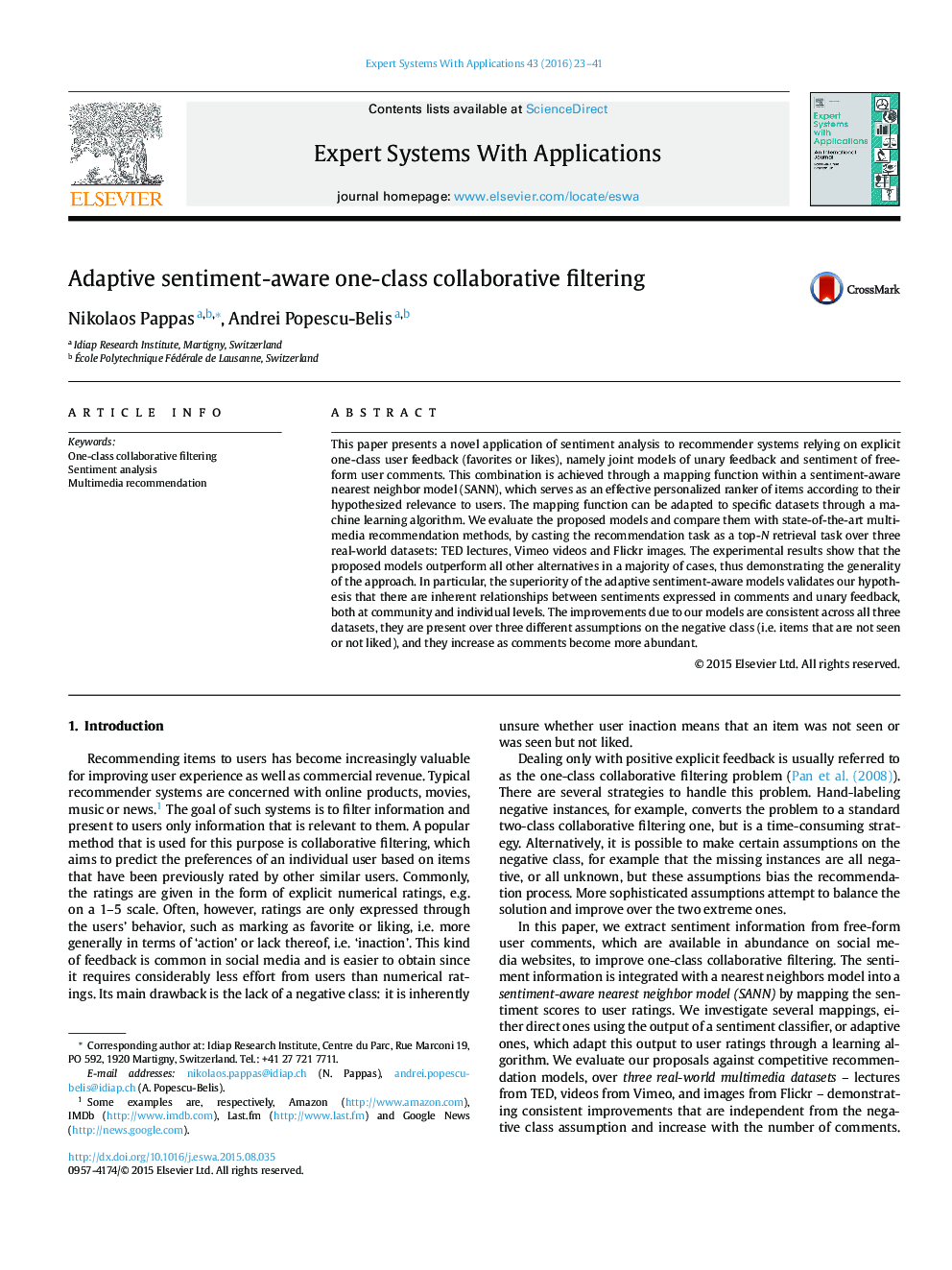| کد مقاله | کد نشریه | سال انتشار | مقاله انگلیسی | نسخه تمام متن |
|---|---|---|---|---|
| 382634 | 660775 | 2016 | 19 صفحه PDF | دانلود رایگان |
• A sentiment-aware one-class collaborative filtering method is proposed.
• The method integrates user sentiment with ratings via fixed or learned mappings.
• The method compares favorably with other models on three large multimedia datasets.
• Improvements are consistent and independent from the negative class assumption.
This paper presents a novel application of sentiment analysis to recommender systems relying on explicit one-class user feedback (favorites or likes), namely joint models of unary feedback and sentiment of free-form user comments. This combination is achieved through a mapping function within a sentiment-aware nearest neighbor model (SANN), which serves as an effective personalized ranker of items according to their hypothesized relevance to users. The mapping function can be adapted to specific datasets through a machine learning algorithm. We evaluate the proposed models and compare them with state-of-the-art multimedia recommendation methods, by casting the recommendation task as a top-N retrieval task over three real-world datasets: TED lectures, Vimeo videos and Flickr images. The experimental results show that the proposed models outperform all other alternatives in a majority of cases, thus demonstrating the generality of the approach. In particular, the superiority of the adaptive sentiment-aware models validates our hypothesis that there are inherent relationships between sentiments expressed in comments and unary feedback, both at community and individual levels. The improvements due to our models are consistent across all three datasets, they are present over three different assumptions on the negative class (i.e. items that are not seen or not liked), and they increase as comments become more abundant.
Journal: Expert Systems with Applications - Volume 43, January 2016, Pages 23–41
